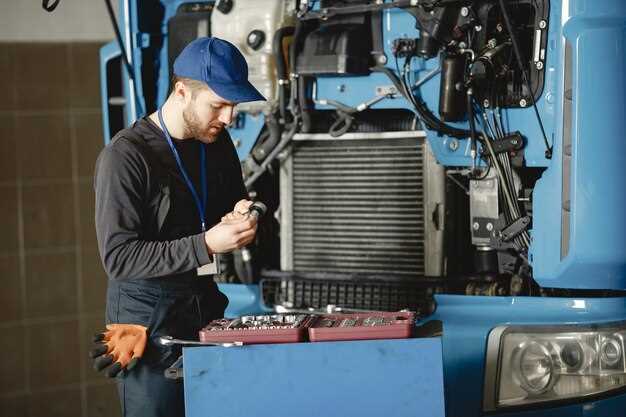
Maintaining your truck is crucial for achieving long-lasting performance and reliability on the road. Proper maintenance not only extends the lifespan of your vehicle but also improves its efficiency and safety. Neglecting maintenance tasks can lead to costly repairs and unexpected breakdowns, potentially jeopardizing your work schedule and safety.
This article will outline essential maintenance tips that every truck owner should follow. From regular inspections and fluid checks to tire care and brake maintenance, these practices can significantly enhance your truck’s performance and durability. Implementing these strategies can help you avoid common pitfalls and keep your vehicle running smoothly for years to come.
Whether you use your truck for commercial purposes or personal adventures, understanding the importance of routine maintenance is key. By investing time and effort into proper care, you can ensure that your truck remains a dependable companion, capable of meeting your needs in any situation.
Regular Oil Changes and Fluid Checks
Maintaining optimal performance for your truck heavily relies on regular oil changes and fluid checks. Engine oil lubricates the moving parts, reduces friction, and aids in temperature control. Over time, oil degrades and loses its effectiveness, leading to increased wear and tear on engine components.
Schedule oil changes according to the manufacturer’s recommendations, which can typically range from every 3,000 to 10,000 miles depending on the type of oil used. Synthetic oils often allow for longer intervals. Regularly inspecting the oil level and quality is equally crucial. A quick dipstick check can reveal if the oil is dirty or low, signaling the need for an immediate change.
Alongside oil changes, fluid checks are essential for various systems within your truck. These include transmission fluid, brake fluid, coolant, and power steering fluid. Each fluid plays a vital role in the truck’s functionality and safety. For example, low transmission fluid can lead to shifting problems, while insufficient brake fluid can compromise stopping power.
Routine checks of these fluids can prevent costly repairs down the line. Always ensure that fluids are at the appropriate levels and free of contaminants. Top them off as needed, and replace any fluids that appear discolored or have a burnt smell. By adhering to a consistent schedule for oil changes and fluid maintenance, you will not only enhance your truck’s performance but also extend its lifespan significantly.
Tire Care: Rotation, Alignment, and Pressure Monitoring

Proper tire care is essential for ensuring optimal performance and safety of your truck. Regular attention to tire rotation, alignment, and pressure monitoring can extend tire life and improve handling.
Tire rotation is the practice of changing the position of each tire on the vehicle in a specific pattern. This process helps to ensure even tread wear, which is crucial for maintaining traction and stability. It’s recommended to rotate tires every 5,000 to 7,000 miles or as specified by the vehicle manufacturer. Ignoring tire rotation can lead to uneven wear, resulting in the need for premature tire replacement and potentially compromising safety.
Alignment refers to the adjustment of the truck’s suspension system, which affects how the tires make contact with the road. Proper alignment ensures that all four tires are sitting perpendicular to the road and parallel to each other. Misalignment can occur due to hitting potholes, curbs, or general wear and tear. Poor alignment leads to uneven tire wear, steering issues, and can negatively impact fuel efficiency. Regular alignment checks, ideally every 10,000 miles or if you notice unusual handling, can prevent these problems.
Maintaining correct tire pressure is vital for both safety and performance. Under-inflated tires can cause poor handling, increased fuel consumption, and excessive wear. Conversely, over-inflated tires can lead to a harsh ride and reduced traction. It’s recommended to check tire pressure at least once a month and before long trips, using a reliable tire pressure gauge. The ideal pressure for your truck’s tires can usually be found on a sticker inside the driver’s door or in the vehicle’s manual.
In conclusion, regular tire rotation, alignment checks, and monitoring tire pressure are critical components of truck maintenance. Implementing these practices not only enhances the longevity of the tires but also ensures better driving performance and safety on the road.
Importance of Brake Inspection and Replacement

Regular brake inspection and timely replacement are critical for maintaining the safety and performance of trucks. Brakes are one of the most vital components of a vehicle, responsible for controlling speed and stopping power. Neglecting brake maintenance can lead to serious accidents, endangering not only the driver’s safety but also the safety of others on the road.
Brakes can show signs of wear through various indicators, such as squeaking or grinding noises, a spongy feeling in the brake pedal, or a decrease in braking efficiency. Regular inspections allow for the early identification of these issues, enabling truck owners to address them before they escalate into costly repairs or dangerous failures. During an inspection, professionals can evaluate brake pads, rotors, linings, and hydraulic systems to ensure they are functioning properly.
Additionally, different driving conditions can significantly affect brake wear. Trucks often operate in challenging environments, including heavy traffic, steep inclines, and various weather conditions. This variability requires more frequent inspections to adapt to changing performance demands. Regular checks help in maintaining optimal braking performance, which is essential for the heavy loads that trucks often carry.
When it comes to brake replacement, using high-quality parts is crucial. Aftermarket components may save money initially but can result in poorer performance and safety risks. Investing in reliable and durable brake parts enhances not only the truck’s longevity but also ensures that it meets safety standards.
In summary, prioritizing brake inspection and replacement is essential for any truck owner looking to ensure long-lasting performance and safety. Regular maintenance not only extends the lifespan of brake components but also contributes to overall vehicle reliability, reducing the likelihood of breakdowns and accidents on the road.
